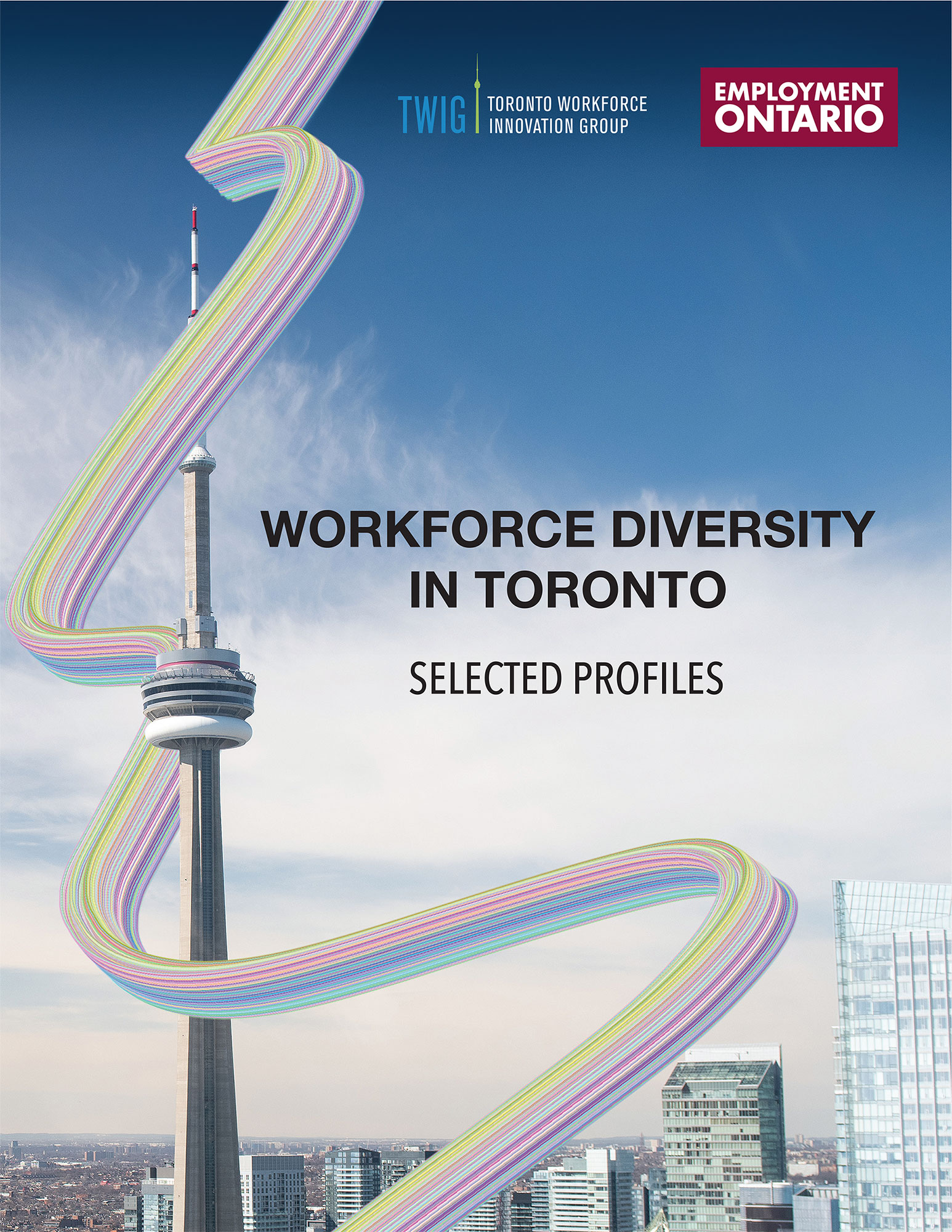
Because of the richness of the data, the 2021 Census of Canada provided TWIG with the opportunity to examine the workforce characteristics of groups who have faced collective and individual barriers in Toronto’s labour market.
In particular, we looked at:
- Older Job Seekers
- Workers with Disability
- Black Workforce
- Visible Minority Workforce
- Newcomers (2011-2021)
The profiles contain elements of intersectionality although there were limitations on the analysis due to the depth of data made available from the 2021 Census. The profiles, do however, yield considerable information on the income,
education, occupations, and sectors for each of the above groups. Some highlights from the profiles include:
- The average income for workers with a disability is $15,000 less than for the population as whole.
- Among visible minorities and for Blacks specifically, women earn a higher average income than men. Additionally, visible minority women have a higher average income than that of non-visible minority women.
- The average income of Black Torontonians is significantly lower than that for the total workforce. Black Torontonians are far more likely to work in the Health Care Sector and Transportation and Warehousing Sector. Blacks are substantially under-rep-resented in both the Finance and Insurance Sector and in the Professional, Scientific and Technical Service Sector.
- Educational levels and types of occupations held by immigrants admitted to Canada and living in Toronto changed between 2011 and 2021.
- The percentage of older job seekers reporting a disability is significantly higher than for the workforce as a whole. 41% of all older job seekers in Toronto report a disability.
Taken together, the profiles yield important information that has implications for workforce policymakers and practitioners who want to design better employment supports for groups facing barriers to employment and higher income in the City of Toronto. These are discussed within each profile.

Acknowledgements
Toronto Workforce Innovation Group (TWIG) is a non-profit and independent research organization devoted to finding and promoting solutions to employment-related problems in the Toronto Region. Our Board of Directors is comprised of passionate leaders from Toronto’s business, industry, and non-profit communities. Our staff are committed to action-based research and data analysis that can be used by the workforce development system to support Toronto’s
vibrant and diverse economy.
Learn more about TWIG at: www.workforceinnovation.ca

Employment Ontario, a service of the Ministry of Labour, Immigration, Training and Skills Developmentm, offers a comprehensive employment and training network across Ontario. The organization provides job search assistance, training and skills development, resume and interview preparation, and employment supports. The network helps individuals find and retain jobs, upgrade their skills, and overcome employment barriers.
Funding from Employment Ontario made this report possible.
Written by: Kevin Stolarick, PhD & John MacLaughlin
Edited by: Megha Parhar
Webpage Publishing: Dominic Chan
Illustrations & Graphic Design: Kevin Donaghy
Cover Image used under License from Envato Elements